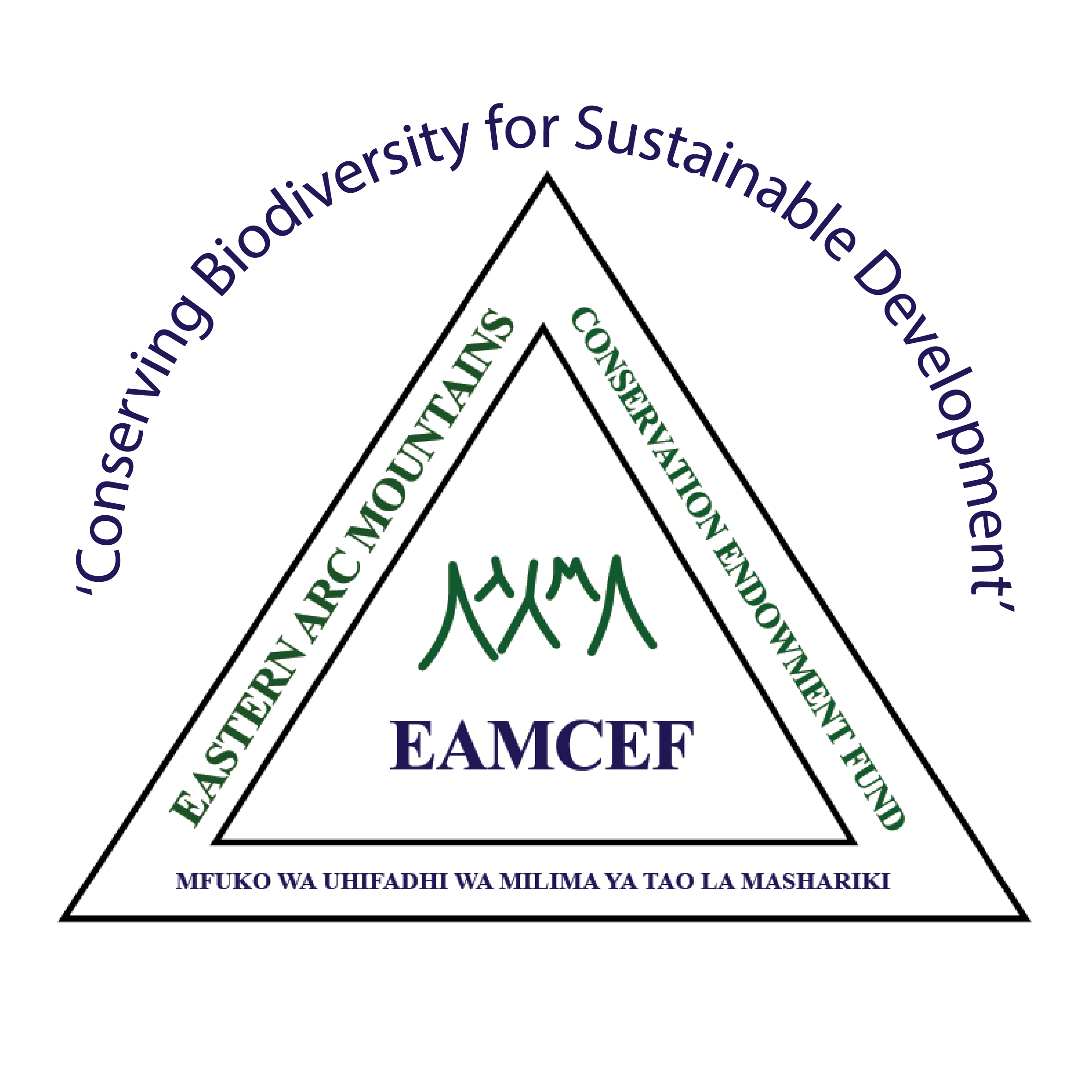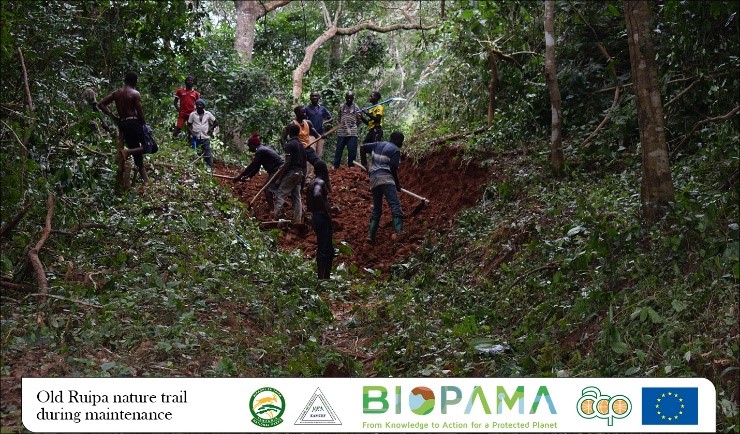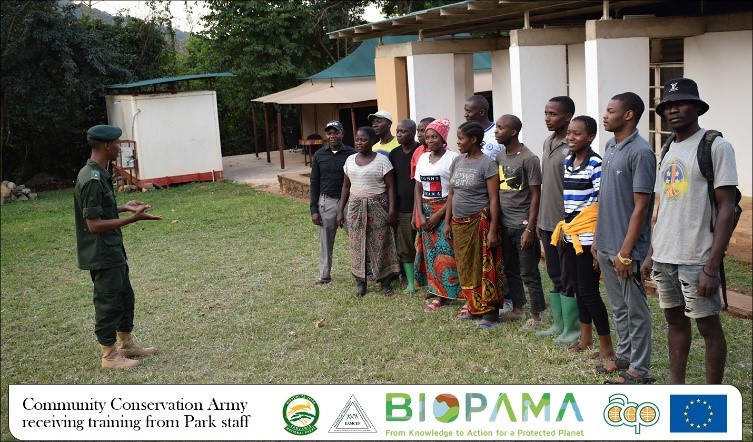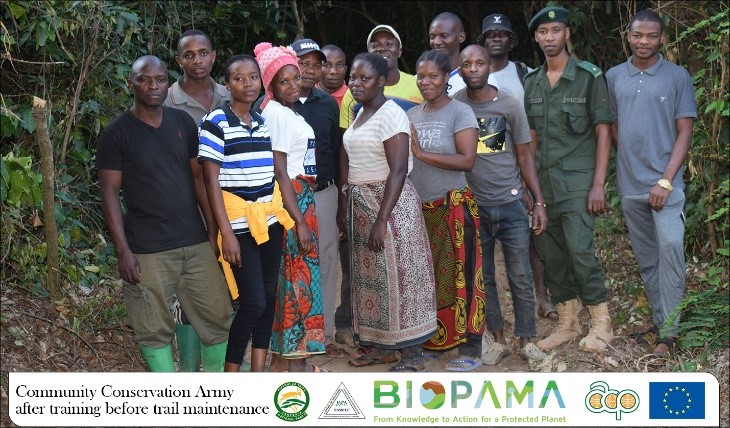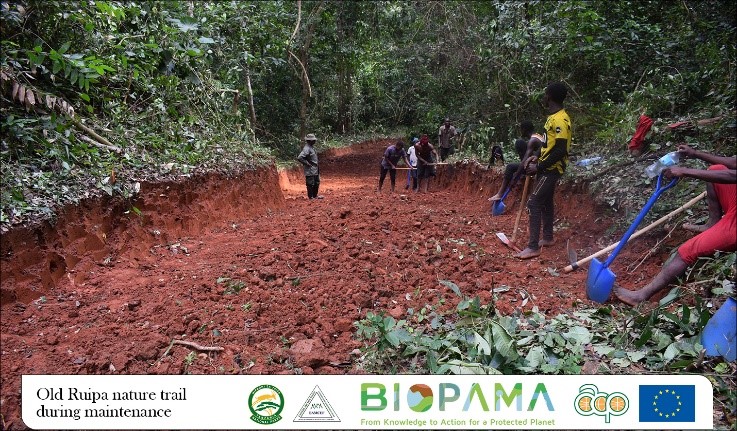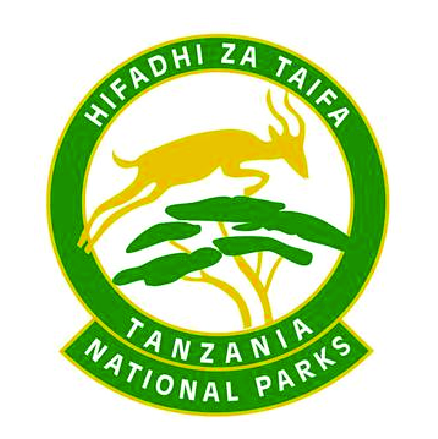The “Community Centered Conservation (3Cs)” is a project financed by BIOPAMA after an agreement which was made between IUCN, the International Union for Conservation of Nature and Natural Resources and the Eastern Arc Mountains Conservation Endowment Fund (EAMCEF) as a grantee. This agreement is known as the BIOPAMA Grant Agreement Rapid Response Grants: RRG-EA-1246 that was made on 7th May, 2021 with a budget of € 49,904.80.
The overall objective of “Community Centered Conservation (3Cs)” project is to Maintain livelihoods and/or enhance resilience of local communities to major shocks caused by COVID pandemic, whilst effectively contributing to protected areas management.
The outbreak of coronavirus disease (COVID-19) has badly affected tourism activities that have been significantly supporting Park conservation and the livelihoods of the local communities at large. For example 75% of the tourism incomes have been used to support Park conservation, maintenance and anti-poaching activities while the remaining 25% were used to support the livelihoods of the adjacent communities by involving them in different activities in the Park.
The decline in tourism activities led community members to engage in different illegal activities in the Park such as hunting, wild fires and charcoal burning in order to survive.
The Udzungwa Mountains National Park and the local communities of Kilombero and Kilolo Districts have been the main beneficiaries of this project since its inception. The financial support that have been provided by BIOPAMA through the EAMCEF in the first quarter have led to the implementation of various conservation activities in the Park such as maintenance of nature trails and drive routes including the construction of 1 local bridge. These activities have contributed much to the livelihood improvement of the adjacent communities through allowances that have been paid to community members who were involved to those activities by the Park management.
Also through this project the illegal activities has begun to decrease significantly in the Park because the community members who were relying on illegal activities to survive have decided to engage in other income generating like poultry keeping, agriculture and selling second hand clothes in the streets. The awareness on the importance of environmental conservation has also increased among the adjacent communities of Udzungwa Mountains National Park.
